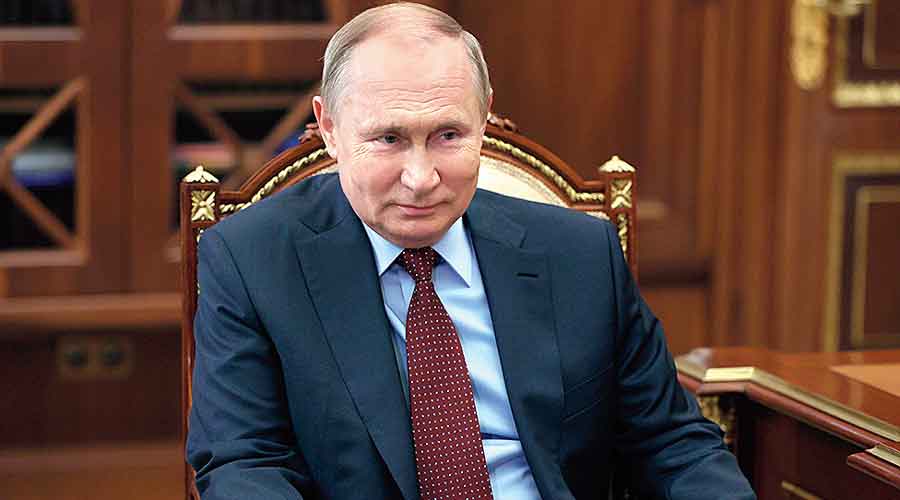President Vladimir V. Putin of Russia on Wednesday called Mikhail S. Gorbachev “a politician and statesman who had a huge impact on the course of world history”, offering a conciliatory message about the last Soviet leader, whose legacy of openness he has spent his years in power trying to reverse.
In a brief condolence telegram to Gorbachev’s family published by the Kremlin the day after his death, the Russian leader said that Gorbachev “led our country during a period of complex, dramatic changes”, and offered his “sincere words of sympathy and support”.
Putin’s first public comments on Gorbachev’s death were a sharp contrast with his policies, which have sought to undo much of his predecessor’s legacy of more personal and political freedoms. Putin has also called the end of the Soviet Union — which Gorbachev presided over — the “greatest geopolitical catastrophe of the century”, and is now waging a war in Ukraine to recapture what he sees as lost Russian lands, a war whose possibility Gorbachev once dismissed as “absurd”.
Gorbachev “deeply understood that reforms were necessary, he strove to offer his own solutions to urgent problems”, said Putin, who noted “the great humanitarian, charitable and educational work” of Gorbachev’s wife, Raisa. The condolence note allowed Putin to appear as a statesman above the political fray, but it quickly became clear that Gorbachev would not be venerated by the Kremlin.
Dmitri S. Peskov, the Kremlin’s spokesman, said that the format of Gorbachev’s funeral — such as whether it would receive state honours — had yet to be determined, and would depend on his family’s wishes, according to the Interfax news agency. By contrast, on the day in 2007 when Gorbachev’s successor, Boris N. Yeltsin, died, Putin, who succeeded him, declared a day of national mourning at his funeral.
The ceremony was broadcast live on state television and the lowering of Yeltsin’s coffin was accompanied by an artillery salute. In comments reported by Interfax, Peskov was more forthright than Putin about Gorbachev, calling him “an extraordinary and unique person” while also labeling him a “romantic” who naively believed that a post-Soviet Russia could be friends with the West.
“Gorbachev gave an impulse to end the Cold War and sincerely believed that it will end and there will be an eternal romantic period between the new Soviet Union and the world, and the collective West as we call it,” Peskov said.
“That romanticism did not work out,” Peskov said. “The blood thirstiness of our opponents showed itself and it is good that we have realised and understood it in time.”
Since his early days in the Kremlin, Putin has worked hard to undo Gorbachev’s signature policies such as glasnost, meaning openness and transparency of government and free discussion of its work. However, Putin has been careful never to condemn Gorbachev’s legacy in full, arguing that he had to preside over a Soviet system that could not be fixed.
For his part, Gorbachev, too, never criticized Putin to an extent that questioned his legitimacy as Russia’s ruler. In ill health in the last months of his life, Gorbachev said nothing publicly about Putin’s war in Ukraine.
The son of a Ukrainian mother and a Russian father, Gorbachev shared Putin’s view that Ukraine should be in Russia’s orbit, once telling a journalist: “It might not be a scientific fact, but we are the same people.” He supported Putin’s annexation of the Crimean peninsula in 2014 but told a Siberian news outlet that the worst could be avoided. “A war between Russia and Ukraine — this is absurd,” he said.
Two days after Putin’s invasion in February, his Gorbachev Foundation, a research institute that “seeks to promote democratic values,” issued a statement calling for a “speedy cessation of hostilities” and “the immediate start of peace talks.”
(New York Times News Service)











